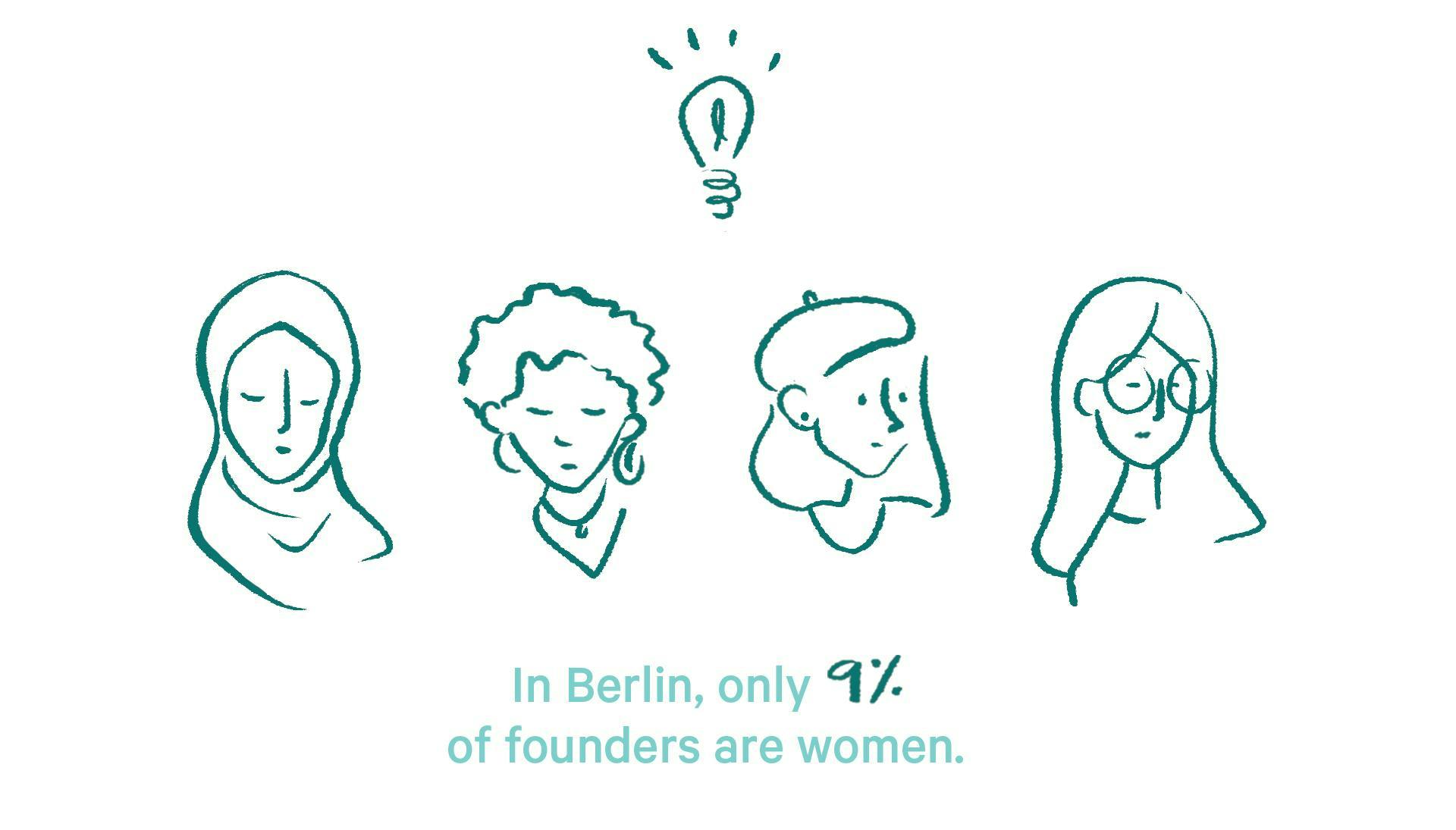Startup founders should build diverse teams from day one. Here’s how
ith diversity becoming something of a buzzword in the world of entrepreneurship in recent years, the statistics still show that companies can improve when it comes to addressing diversity. Floria Susan Moghimi, a Berlin-based diversity and inclusion consultant, believes that prioritizing diversity can only be a good thing for startups. She offers tips for founders in achieving this.
Who comes to mind when you think of a typical startup founder? Do you think of Mark Zuckerberg, Elon Musk or Steve Jobs? These three people all have things in common: they are white and male.
The photos in popular Berlin startup publications seem to confirm the stereotypical images you might have had in mind. There’s undoubtedly a lack of representation in the German capital’s startup ecosystem.
[ Read also: ‘Females should invite females’: Founders weigh in on Berlin’s startup ecosystem ]
But teams at startups that lack diversity – which can mean, for instance, that they lack people of color, transgender people or those with disabilities – are missing out on important perspectives when it comes to revolutionalizing markets.
Before we look at the steps entrepreneurs can take when it comes to addressing diversity in their businesses, let’s first look at what unconscious bias is in this context, as well as the statistics which show how diverse teams in a company can be a positive thing.

Diversity by the numbers
While Berlin’s tech scene continues to boom, there are still far fewer women founders compared to men. According to the 2019 Global Startup Ecosystem Report, 9 percent of founders in Berlin are female.
Moreover, according to the State of European Tech in 2018, while 93 percent of European venture capital went to all-male founding teams, 7 percent went to the rest (male and female and all-female founding teams). These statistics reveal the gender investment gap; women get less support financially when it comes to founding their businesses.

When women business owners pitch to investors for early-stage capital, they also receive significantly less compared to their male counterparts, according to research last year by the Boston Consulting Group.
On a global scale, the statistics aren’t much better. 95 percent of CEOs at the world’s biggest companies are male.
Meanwhile, German companies still have a lot of work to do when it comes to diversity and inclusion in the workplace. Two-thirds of the companies based in Germany haven’t yet initiated diversity and inclusion initiatives.
Unconscious biases pose challenges to diversity
Whether we realize it or not, many of us have deeply-rooted unconscious biases which can take the form of assumptions and stereotypes of others.
Traditional notions still exist of women being responsible for child-rearing and raising a family, rather than building their careers. This kind of thinking does nothing to help the statistics mentioned above.
Moreover, if you’re a woman and behave according to what is perceived as male (career-oriented, ambitious, assertive, etc.), this behavior is often punished and seen as bossy, writes Iris Bohnet, author of What Works: Gender Equality by Design.
Think further than just binary categories like men and women, as diversity encompasses much more than that.
The Implicit Association Test (IAT) developed by Harvard University highlights the clear gap between what we believe and the unconscious biases we have. As it turns out, you can be a feminist and still have internalized stereotypical thinking. Find out whether this might be the case by taking the test yourself here.
What these unconscious biases can mean is that ultimately, people who aren’t white males are hindered from gaining confidence in themselves when it comes to entrepreneurship. This, in turn, results in a lack of role models for, say, young women and girls to look up to. As such, having diverse role models is more important than ever.
Diversity is good for business
The more founders invest in diversity from day one, the more it will pay off. A 2018 McKinsey report stated that “the inclusion of highly diverse individuals – and the myriad ways in which diversity exists beyond gender – can be a key differentiator among companies.”
Indeed, diversity can lead to a better return on investment for investors and better exits for entrepreneurs.
According to the Boston Consulting Group, startups launched by women are also significantly better financial investments. For every dollar of funding, startups launched by women generate 78 cents, while male-founded startups generate less than half of that at just 31 cents.
Diversity can also boost a startup’s capacity to innovate. Solving a complex problem is easier if it’s analyzed from diverse perspectives. This means to think further than just binary categories like men and women, as diversity encompasses much more than that.
Being German and a person of color is not a contradiction.
Entrepreneurs should connect with people of all genders, such as non-binary and transgender people. They should reach out and listen to people of color, including black people, as well as people with disabilities.
They should also speak to those of different religions, such as Muslim and Jewish people, as well as focus on networking with people from underrepresented groups.
Building a diverse team from day one will also help founders to increase their startup’s talent pool. For instance, if diversity is already represented in your team, you’ll more likely be able to attract a variety of talented candidates.
Disrupting traditional markets and targeting global markets is moreover much easier if you have team members that are experts when it comes to more varied and specific target groups.

Photo: Unsplash
Five tips for addressing diversity
Main photo by Unsplash

